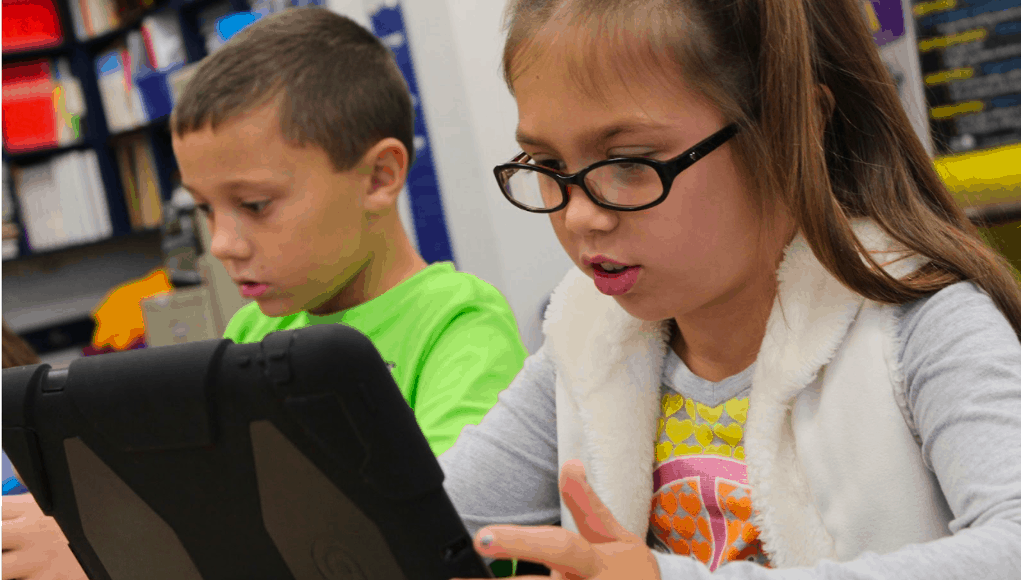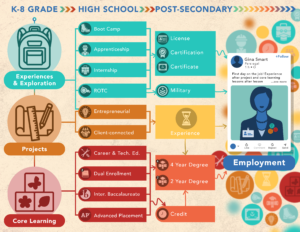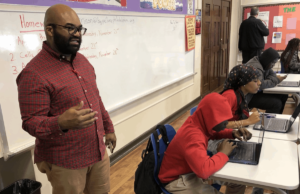Supporting Digital Citizenship Development as a School Counselor

By Syrenna Kononovitch
There is no avoiding the integrative nature of technology in many aspects of our lives. Academia is seeing a huge influence and impact of different tech tools in subject education, test-taking, college applications, PowerPoint games shows, podcast listening and much more.
Some schools provide Google ChromeBooks or Apple iPads to their students to promote educational achievement in the form of access to websites, downloadable applications or other online academic media. But technology in education doesn’t just stay at schools. At home, students are submitting assignments electronically, researching history facts for their essays and watching YouTube videos assigned by their teachers on topics relevant to their current lesson.
There is no doubt that technology has increased the impact of interactive education for students across the country. The Department of Education cites the following positive Effects of Technology on Classrooms and Students:
- Independent and Peer Learning
- Increased Motivation and Self Esteem
- Gaining Technical Skills
- Increase in Ability to Handle More Complex Tasks
- More Collaboration with Peers
- Increase in Use of Outside Resources
- Improved Design Skills with Attention to Audience in Presentations
However, coupled with the positive factors of technology in education comes a need to address security and online behavior. Digital citizenship can be defined as a set of competencies that students should reach. CommonSense.org incorporates eight topics into its digital citizenship curriculum from K-12:
- Internet Safety
- Privacy & Security
- Relationships & Communication
- Cyberbullying & Digital Drama
- Digital Footprint & Reputation
- Self-Image & Identity
- Information Literacy
- Creative Credit & Copyright
These eight topics are also areas that teachers, school counselors and principals work on to support the positive character development of their students. No longer is student development based on academics. The need for students to become digital citizens in a world heavily influenced by technology comes to the forefront of character education.
Student Social Interactions Online
A considerable concern in digital citizenship is the communication between students and others on the world wide web. With new social media applications being developed every day, many younger students are making accounts and interacting with peers from their school and beyond.
The initiative to join these social media applications is influenced by their developmental need to win the approval of others and form their own identity, as presented by Erik Erikson and the psychosocial stages of development. While a part of child development, families, school counselors and teachers are still tasked with ensuring that these students participate in appropriate behavior both online and offline.
Interactions between students and with others on the internet can pose concerns on cyberbullying. A relatively new term coined on the negative interactions that take place through technology, cyberbullying is unwanted, aggressive behavior that students become involved in relating to a real or perceived power imbalance.
To address digital citizenship and cyberbullying, school counselors aim to collaborate with principals, teachers and student support staff in providing students with a digital education on internet safety with the evaluation of appropriate and inappropriate online behaviors/ communication.
The American School Counselor Association (ASCA) reviews the role of school counselors in student use of technology:
- Collaborate with families and school personnel in addressing appropriate and responsible use of technology in academic, career and personal/social pursuits
- Develop school policies on technology use in classrooms and school
- Respond to incidents that occur online which impede learning
- Assist in the detection of at-risk behavior
- Address digital citizenship through tech literacy, reputation and social awareness
Fusing digital citizenship with a school counseling curriculum could promote positive and appropriate behaviors in school by students, teachers and other staff when it comes to the use of technology. It is not enough alone to like the use of technology in today’s education, all participants should understand how it works and proper ways of using it.
Resources For Digital Learning and Citizenship
Below is a list of several resources from organizations that promote the education and learning of positive digital behaviors, how to appropriately use the internet, and ways to collaborate with school personnel, parents, and the community in providing a safer digital world.
- Our Space: Being a Responsible Citizen of the Digital World: The GoodPlay Project and Project New Media Literacies collaborated to bring educators an organized lesson planning guide for appropriate engagement in digital media from social networks, online games, social media, and informational resources.
- Canada’s Centre for Digital and Media Literacy offers Media Smarts, their comprehensive resource on basic digital & media literacy, teaching youth to engage with different types of media, and what issues they may encounter online.
- The Internet Keep Safe Coalition (iKeepSafe) aims to certify digital products that are compliant with federal and state requirements for handling protect information. iKeepSafe provides educators, parents, and the community with resources on building healthy digital citizens.
For more, see:
- The Digital Citizenship Primer EVERY Student Needs: Become an iMature Student
- Using Avatars to Teach Digital Citizenship
- #EdTechChat: Digital Citizenship
Syrenna Kononovitch is a school counselor and co-creator of the School Counselor ToolKit from OnlineCounselingPrograms.com. Follow them on Twitter: @CounselingEd
Stay in-the-know with all things EdTech and innovations in learning by signing up to receive the weekly Smart Update.





0 Comments
Leave a Comment
Your email address will not be published. All fields are required.